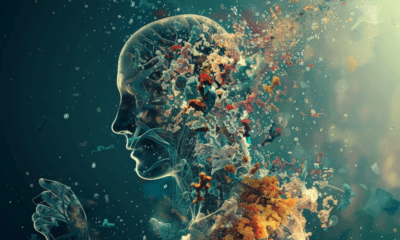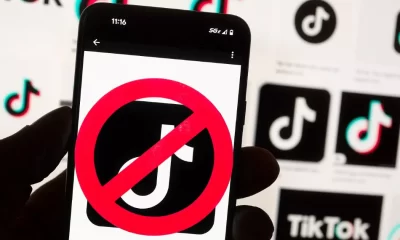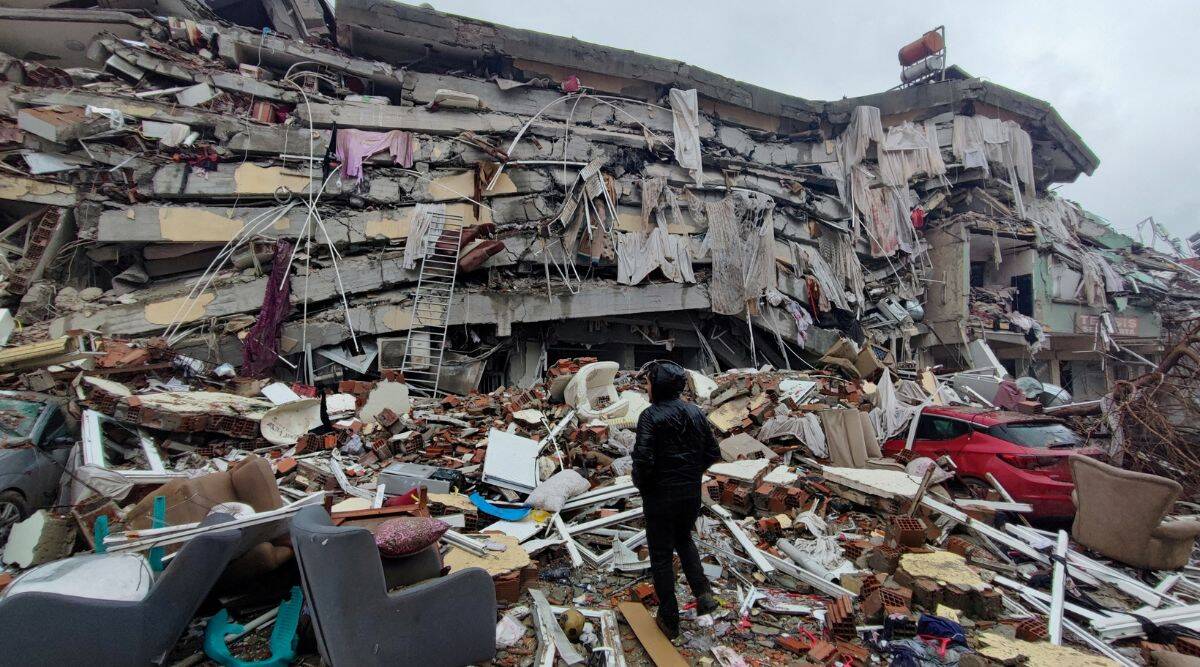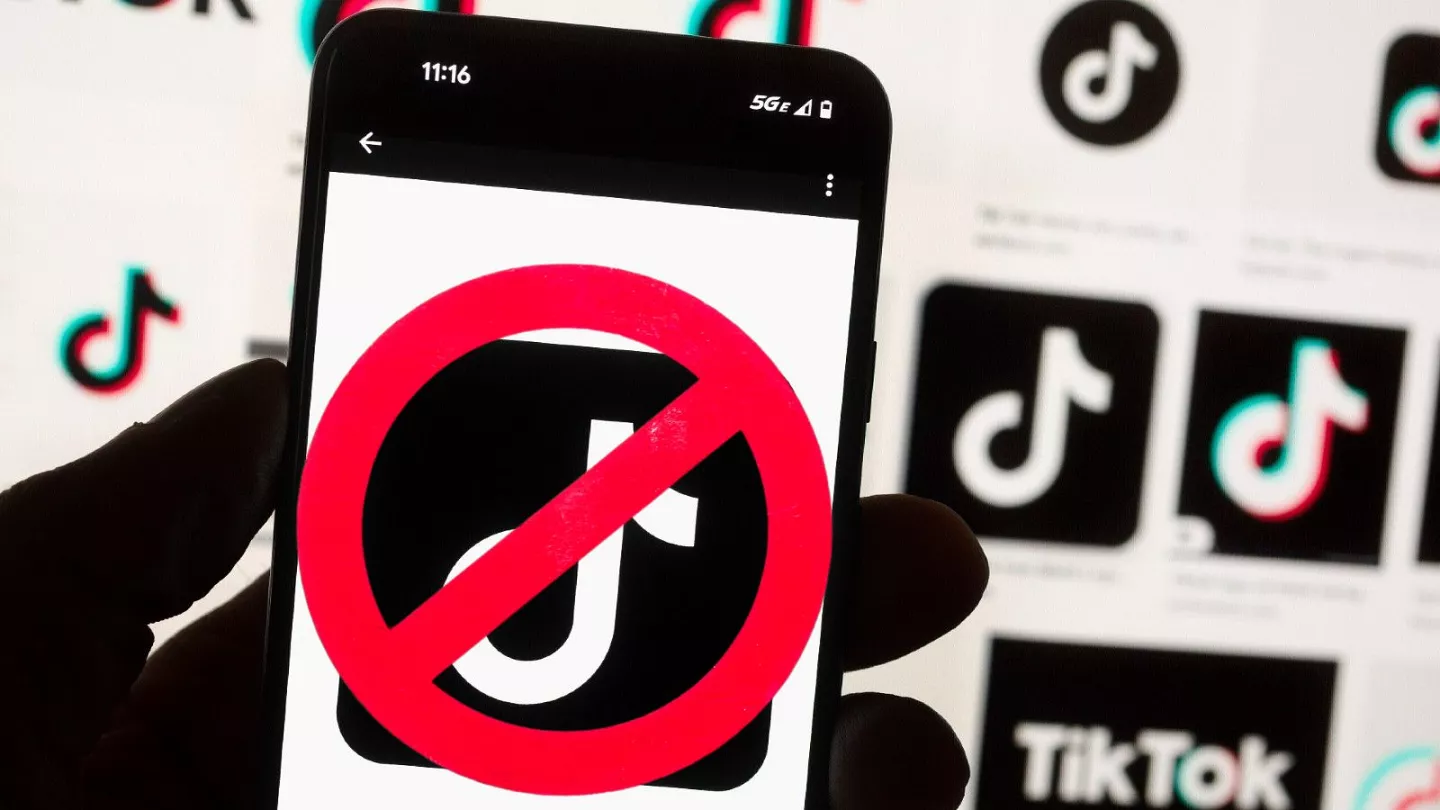Certainly the scale of the destruction was unforeseen. The death toll from the earthquakes of Feb. 6, 2023, that struck Turkey and northern Syria is still climbing. But one week on, it has been documented that over 35,000 people were killed, with more than 50,000 injured and over 1,000,000 receiving aid for survival in bitter cold conditions. The magnitude 7.7 earthquake hit while many were sleeping in the town of Pazarcık in Kahramanmaraş, southern Turkey – the epicenter of the quake. It was followed nine hours later by a major aftershock in Elbistan, a town about 50 miles from the initial quake, sending buildings weakened in the first shock to total collapse.
The final death tolls are likely to place these two successive earthquakes among the worst natural disasters that have been witnessed in the world.
The sobering question to us, as disaster mitigation scholars, is whether this enormous loss of lives, homes and livelihoods could have been avoided. There is no way to prevent an earthquake from occurring, but what can be prevented – or at least curtailed – is the scale of the calamity caused by these inevitable tremors.
In our view, any suggestion that a country cannot “be prepared” for an earthquake of the magnitude that hit Turkey and northern Syria is a political statement – that is, it reflects the political choices that were made rather than the science. In Turkey, the lack of preparedness contrasts sharply with the known conditions of seismic risk that the country faces.
According to the Turkey Earthquake Hazard Map, which was revised and published in 2018, nearly all of Turkey is vulnerable to seismic risk, with two significant fault lines – the East Anatolian Fault zone and the North Anatolian Fault zone – crisscrossing the country.
Threatening populations
The North Anatolian Fault, 870 miles (1,400 kilometers) long, runs east to west across the northern half of the country, menacing the major cities of Ankara, the country’s capital, and Istanbul, and threatening the most industrialized section of the country. The East Anatolian Fault, about 620 miles (nearly 1,000 kilometers) in length, runs diagonally across the southeastern part of the country. It covers an area of smaller cities and villages, but millions of people are at risk in the region.
Turkey has made repeated efforts to address this fundamental seismic risk. In 1959, the Turkish parliament passed Disaster Law 7269, establishing a plan to institute disaster preparedness regulations at national, provincial and municipal levels. The law raised awareness to some degree, but five significant earthquakes in the 1990s shattered any expectations that existing preparedness measures were sufficient to protect the growing population from death and destruction.
After the devastating 1999 earthquakes in the Marmara region of northwestern Turkey – in which more than 17,000 died – the Turkish government instituted a major program of recovery and rebuilding intended to strengthen building codes and improve cross-jurisdictional coordination. Yet, this ambitious program was hampered by chronic corruption and weak implementation of the building codes.
The Turkish government also levied an “earthquake tax” after the 1999 disaster, purportedly to raise funds to better prepare the country for future quakes. Since it was passed, an estimated US$4.6 billion has been raised through the levy. But there are serious questions over how the money has been spent.
Then in 2009, Turkey instituted a National Disaster and Emergency Management Authority to build capacity for disaster risk reduction and management.
AFAD’s mission was to organize disaster preparedness training for provincial and municipal officials and to conduct disaster preparedness training exercises for communities at risk. The approach was to decentralize and reverse the top-down governance approach, enabling local communities to strengthen their own capacity for managing disaster risk.
The role of government
In a further bid to strengthen Turkey’s preparedness, the country introduced a National Disaster Response Plan in 2014. It set out the role of government institutions in case of a disaster under sections such as nutrition group, emergency sheltering group and communication group.
After the Soma mine accident of 2014, in which 301 miners were killed in an underground fire, the Turkish government initiated a review of the national plan. It appointed an international advisory committee that included participants from Japan, the U.S. and Europe to review the existing law and make recommendations for change.
The resulting recommendations included regular monitoring of risk, improved training of emergency personnel and updated technologies for interagency communication. The plan was presented to Turkey’s political leadership, which approved the changes in principle with a view to begin implementation in January 2015.
But the fully revised National Disaster Management Plan was never implemented. In early 2015, the national government changed the leadership of the National Disaster and Emergency Management Authority. In the process, experienced personnel who had advocated for better training, advanced communications technology and updated equipment for local governments were replaced. From our observation, this shift had the effect of reducing the capacity of local governments to take immediate action when hazards occur, as funds for training, new equipment and additional personnel were not granted. Although the plan was in place, little action was taken.
The nonimplementation of the revised disaster plan reflects the gap between knowledge and action in managing Turkey’s seismic risk. It is not possible to stop the earthquakes, but it is possible to construct buildings that do not collapse and kill their residents on a massive scale – as both Japan and California have managed to do.
Building codes
Turkey has designed and approved building codes that are the equivalent of the rigorous codes implemented in seismically challenged California. And there are approximately 150,000 civil engineers in Turkey who have the knowledge and skills to construct buildings, roads and dams that may suffer strain from seismic events but not fail.
But the cost of upgrading existing subpar buildings causes the effort to proceed at a glacially slow pace. While the building design regulation introduced in 2000 is implemented well in major cities, its state-of-the art requirements are poorly understood by engineers in the rest of the country.
A building construction supervision system has been in place since 2010, but its coverage is still too narrow to monitor the country’s 16 million buildings.
Turkey again is at a crossroads and this latest disaster creates an urgent call for national action. Short-term solutions – rebuilding the same style of flawed housing and infrastructure – will only increase the chance of future tragedies.
But there is another course. Turkey’s current generation of engineers, economists, policy analysts and leaders can opt for bold action: redesigning their built environment to live with seismic risk, and engaging the whole population of Turkey in an ongoing experiment to create a society that recognizes earthquakes as a continuing threat that can be managed.



 Shows3 days ago
Shows3 days ago


 News4 days ago
News4 days ago


 News3 days ago
News3 days ago


 Tech5 days ago
Tech5 days ago


 News2 days ago
News2 days ago


 News3 days ago
News3 days ago


 News3 days ago
News3 days ago


 News2 days ago
News2 days ago












